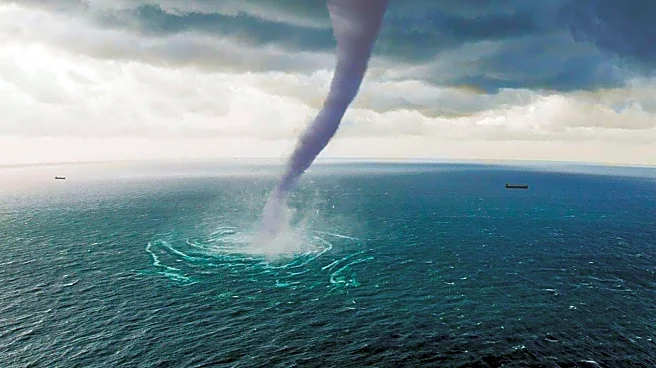What's Happening?
A tragic incident occurred off the coast of Melbourne, Australia, where a surfer in distress and his friend, who attempted to rescue him, both died during stormy weather conditions. The event took place
near Frankston Pier as the city faced wind gusts reaching up to 130 kph (81 mph). According to Police Detective Inspector Melissa Nixon, the 36-year-old British surfer, residing in suburban Frankston, decided to surf despite the wild conditions. His surfboard broke, leading to his struggle in the water. A 43-year-old local from Frankston attempted to rescue him but was unsuccessful. A police rescue helicopter intervened, retrieving both men from the water, but neither could be revived. An emergency responder involved in the rescue was hospitalized due to water intake but was later discharged. The identities of the deceased have not been formally released. Authorities have issued warnings against entering the water under unsafe conditions.
Why It's Important?
This incident underscores the dangers posed by extreme weather conditions and the risks associated with water activities during such times. The deaths highlight the need for increased awareness and caution among individuals engaging in outdoor activities during severe weather. The storm also caused significant disruptions, including power outages affecting thousands of homes and businesses in Melbourne and Victoria state. The event serves as a reminder of the unpredictable nature of weather patterns and the importance of adhering to safety advisories issued by authorities. It also raises questions about preparedness and response strategies for emergency services during natural disasters.
What's Next?
Authorities are likely to continue investigating the circumstances surrounding the incident to prevent future occurrences. There may be increased efforts to educate the public on the dangers of engaging in activities during extreme weather conditions. Emergency services might review their protocols to enhance response times and effectiveness in similar situations. Additionally, local governments could consider implementing stricter regulations or advisories during severe weather events to safeguard public safety.
Beyond the Headlines
The incident may prompt discussions on the ethical responsibilities of individuals when engaging in risky activities and the role of personal judgment in ensuring safety. It could also lead to broader conversations about climate change and its impact on weather patterns, potentially influencing public policy and community preparedness strategies. The tragedy might inspire initiatives aimed at improving emergency response capabilities and public awareness campaigns focused on safety during natural disasters.











